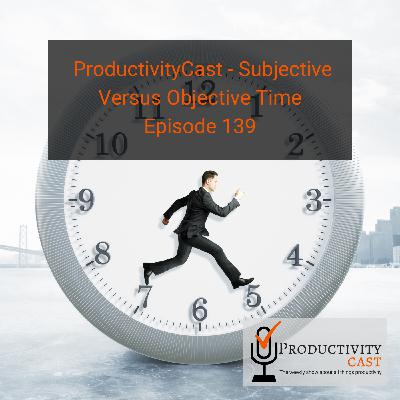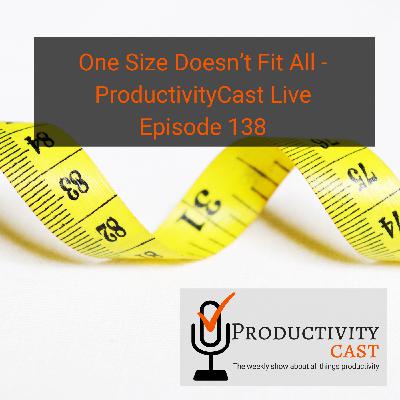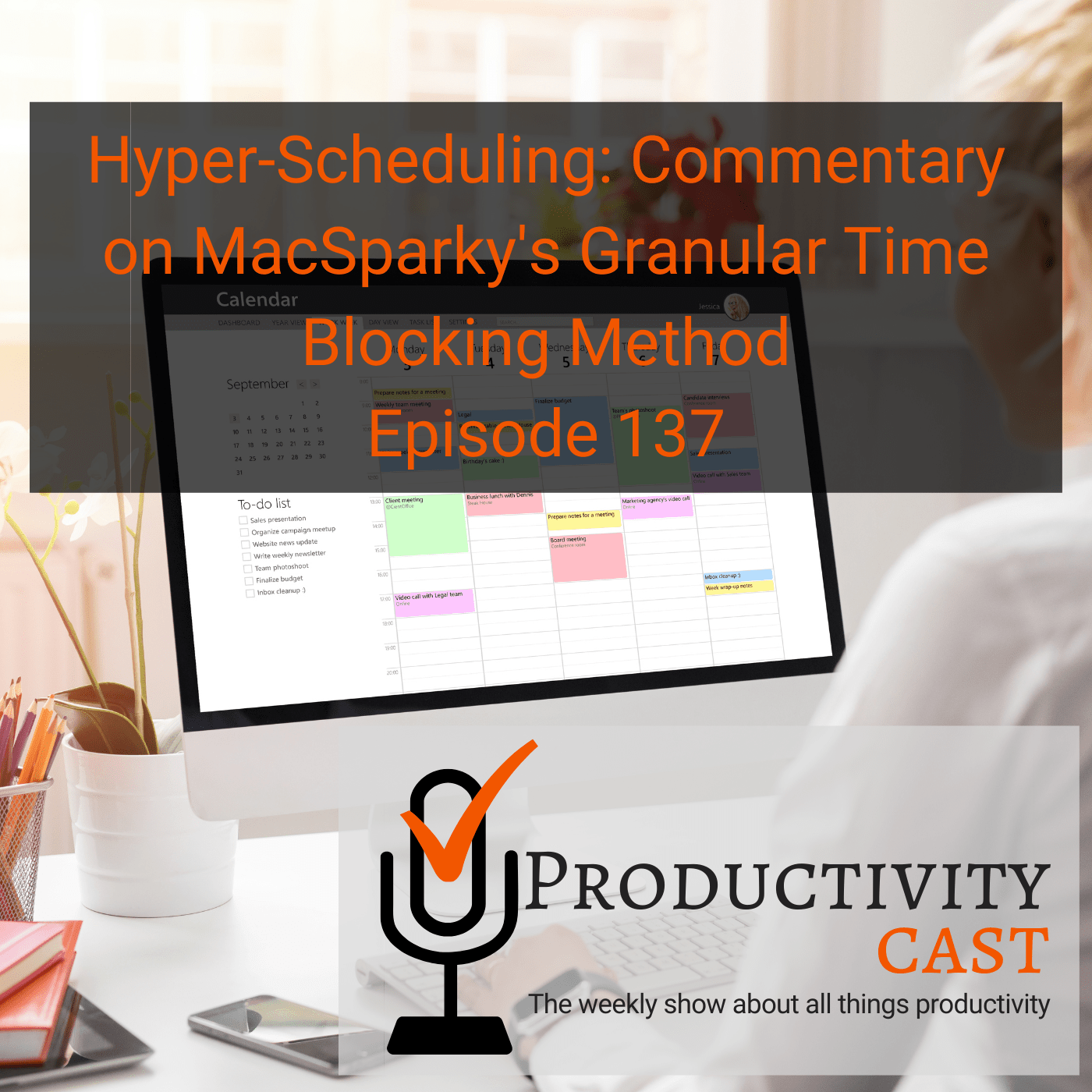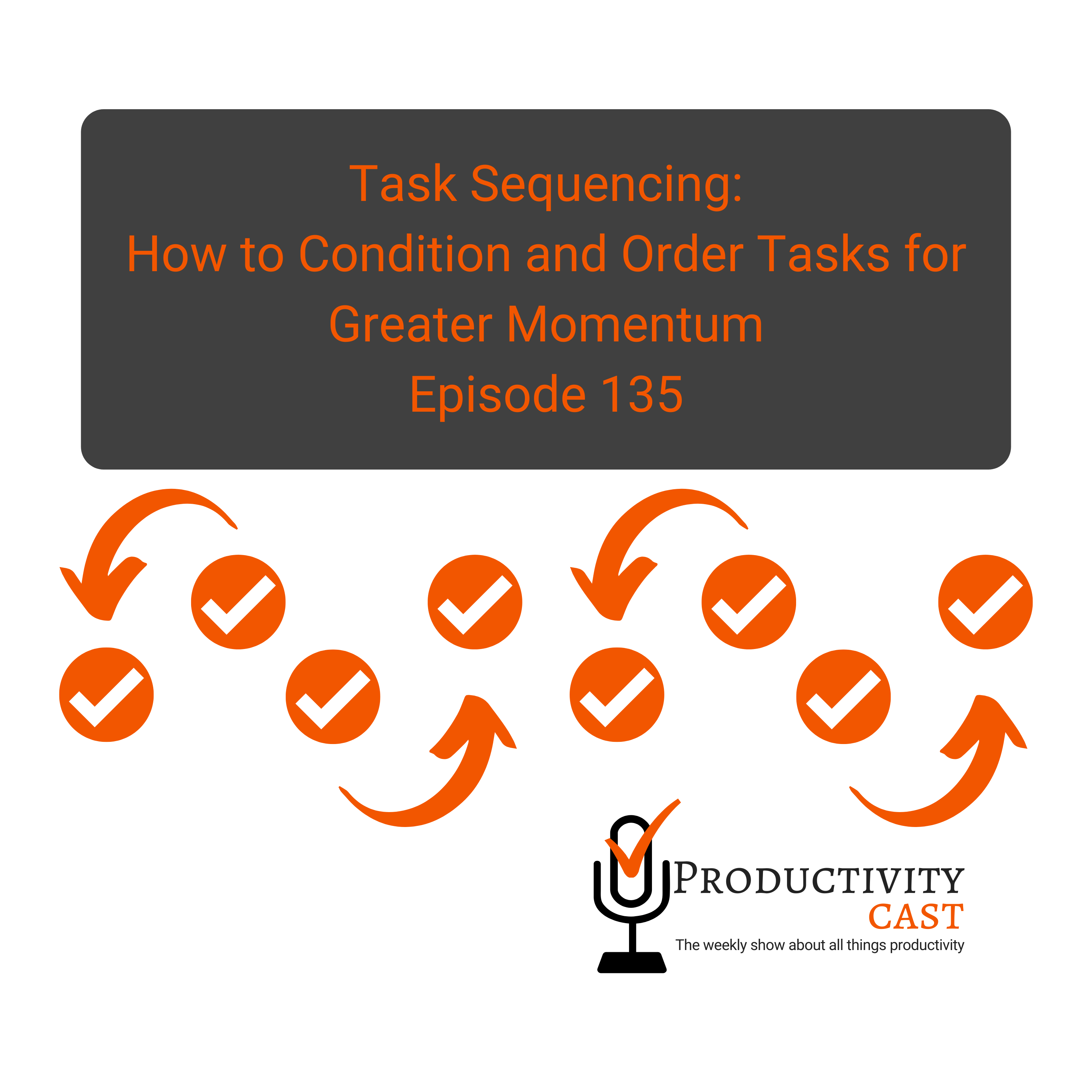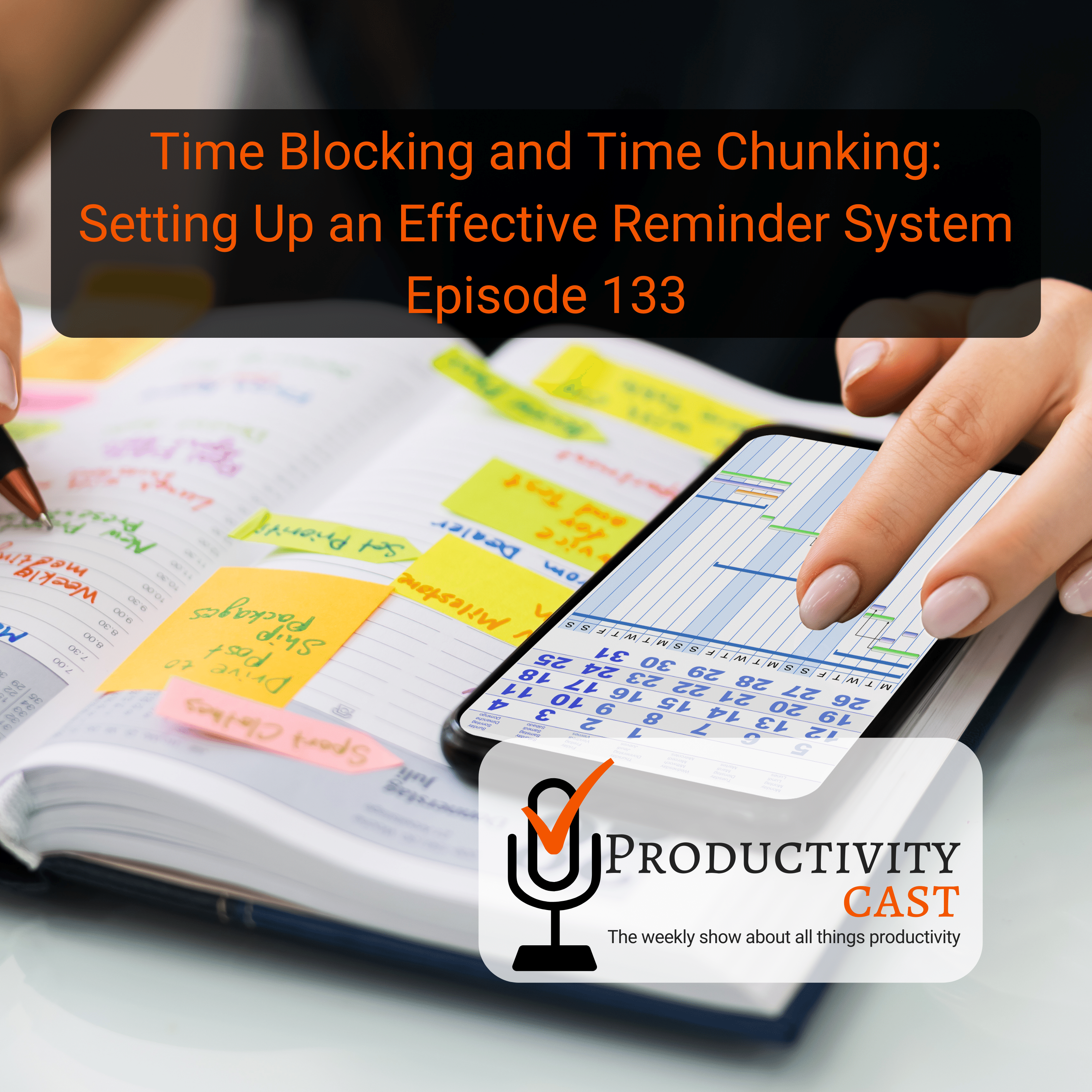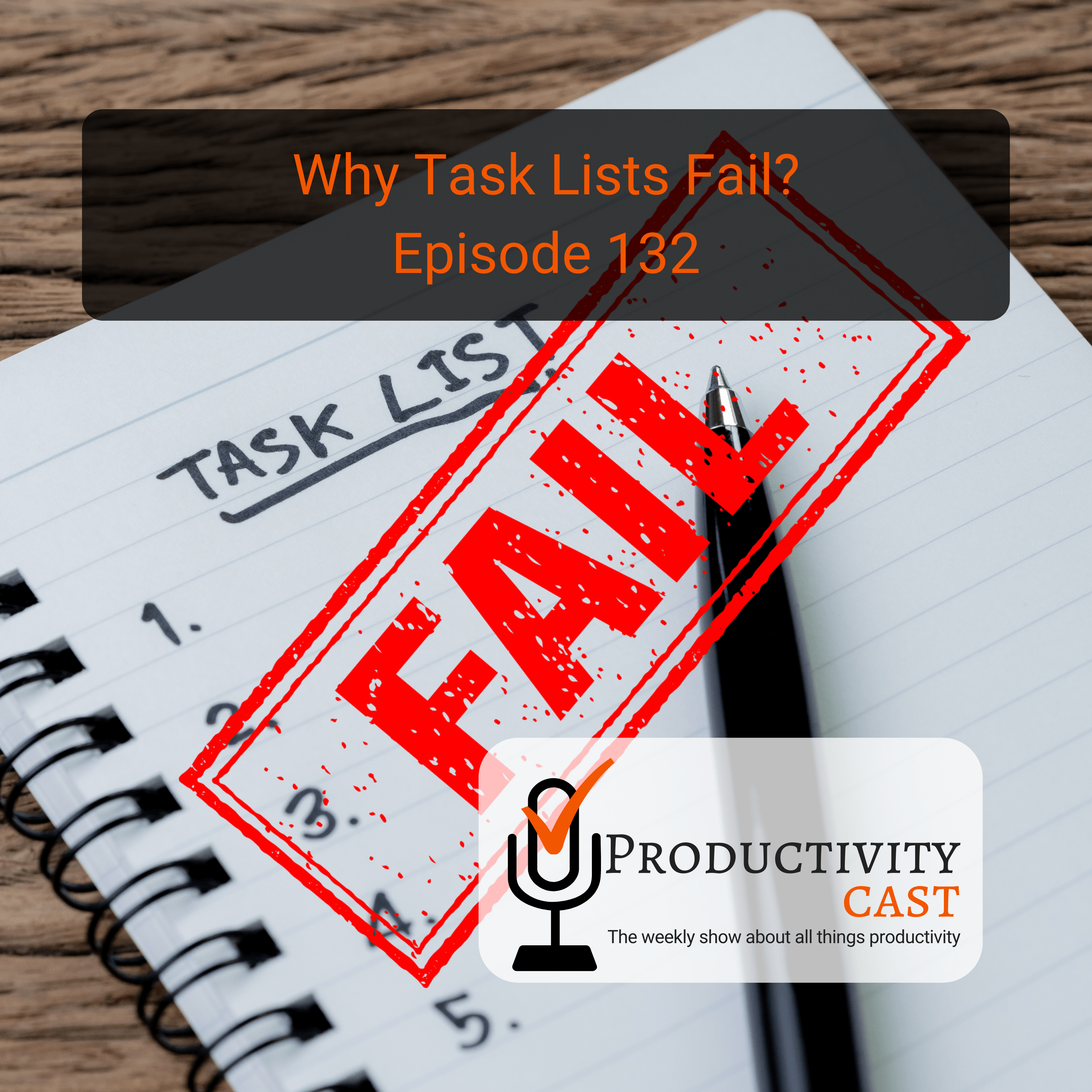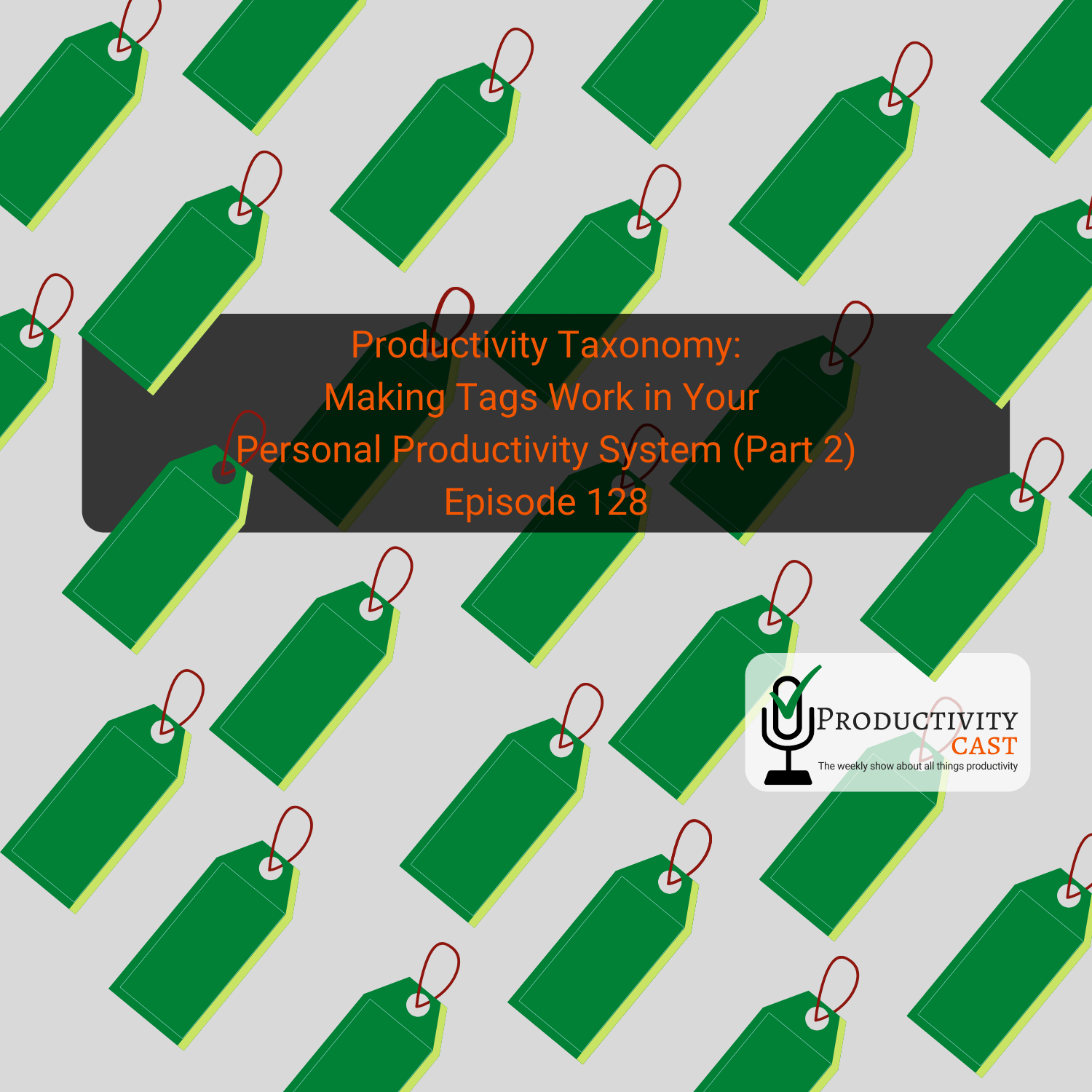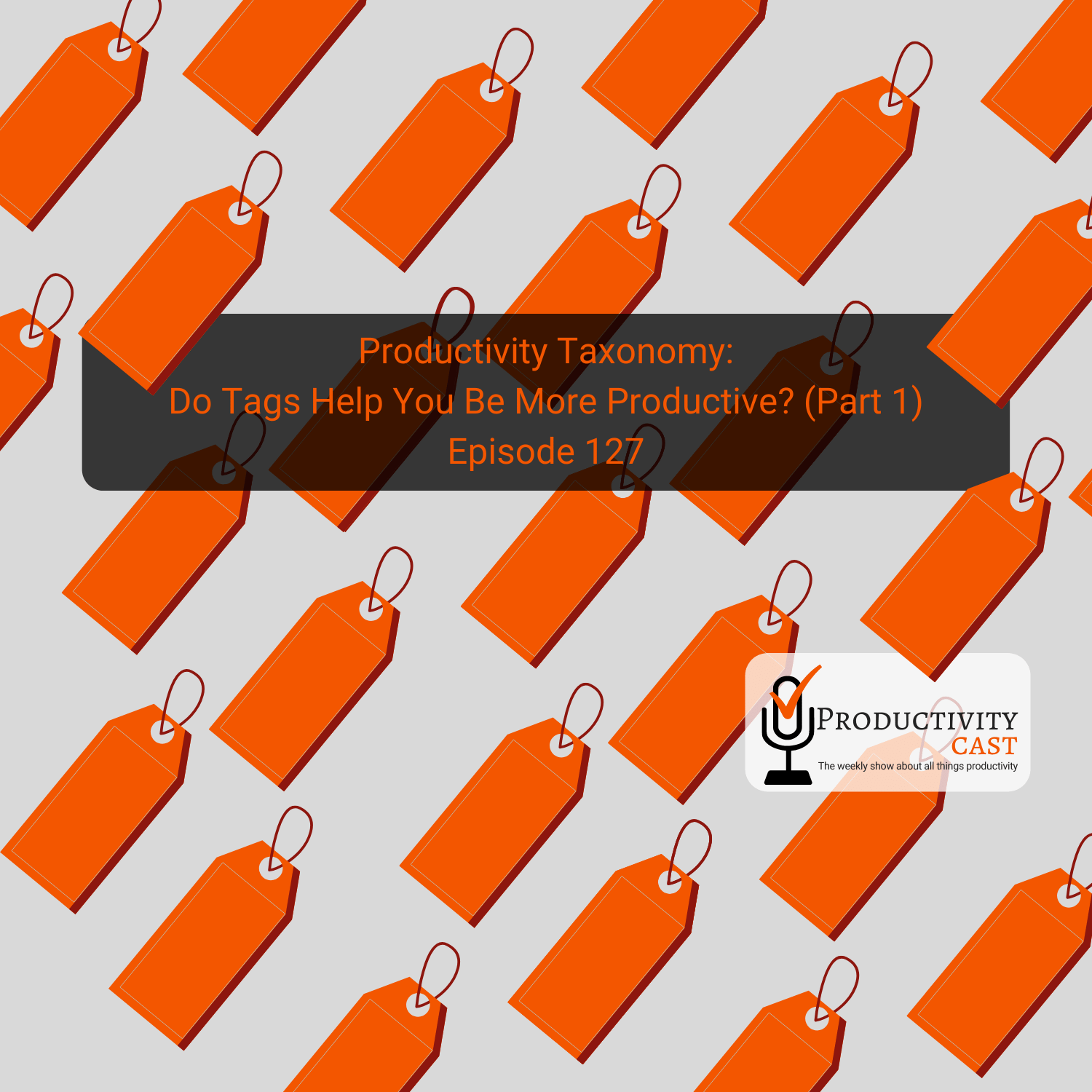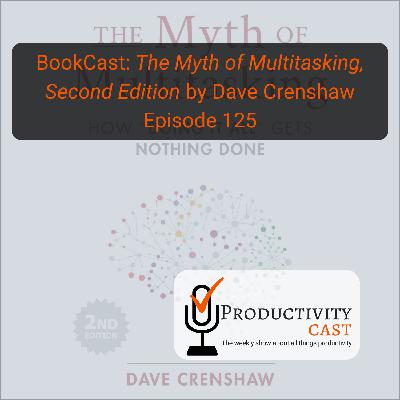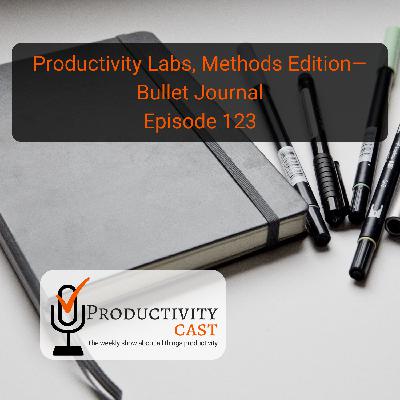Subjective versus Objective Time
Description
In this week’s episode, the ProductivityCast team debated subjective versus objective time as commentary on the article, “My Fixation on Time Management Almost Broke Me.”
Thanks to Brian C. for the recommended reading! (See https://www.personalproductivity.club/posts/14785370.)
(If you’re reading this in a podcast directory/app, please visit https://productivitycast.net/139 for clickable links and the full show notes and transcript of this cast.)
Enjoy! Give us feedback! And, thanks for listening!
If you’d like to continue discussing ProductivityCast – Subjective versus Objective Time from this episode, please click here to leave a comment down below (this jumps you to the bottom of the post).
In this Cast | ProductivityCast – Subjective versus Objective Time
Show Notes | ProductivityCast – Subjective versus Objective Time
Resources we mention, including links to them, will be provided here. Please listen to the episode for context.
- Is Time Management Really “Real”, Or Is It Just a Misnomer? | by Francis Wade | 2Time Labs | Medium
- Victim Mentality: Causes, Symptoms, and More
- The Impact of Temporal Schemata: Understanding When Individuals Entrain Versus Resist or Create Temporal Structure | Academy of Management Review
- Ramit Sethi
- The R Project for Statistical Computing
Raw Text Transcript | ProductivityCast – Subjective versus Objective Time
Raw, unedited and machine-produced text transcript so there may be substantial errors, but you can search for specific points in the episode to jump to, or to reference back to at a later date and time, by keywords or key phrases. The time coding is mm:ss (e.g., 0:04 starts at 4 seconds into the cast’s audio).
Voiceover Artist 0:00
Are you ready to manage your work and personal world better to live a fulfilling productive life, then you’ve come to the right place. ProductivityCast the weekly show about all things productivity, here are your hosts, Ray Sidney-Smith and Augusto Pinaud with Francis Wade and Art Gelwicks.
Raymond Sidney-Smith 0:17
Welcome back, everybody to ProductivityCast, the weekly show about all things personal productivity. I’m Ray Sidney-Smith.
Augusto Pinaud 0:23
I’m Augusto Pinaud.
Francis Wade 0:24
I’m Francis Wade.
Art Gelwicks 0:25
And I’m Art Gelwicks.
Raymond Sidney-Smith 0:26
Welcome, gentlemen, and welcome to ProductivityCast. Welcome to our listeners. Today, we are going to be talking about objective versus subjective time. And we will be trying to objectively thinking about whether or not it actually even exists. So, for instance, do you want to open this up with regard to this article. So basically, this is an article from hbr.org. And actually, Brian Clark in personal productivity club had brought this to my attention. And the article is my fixation on time management almost broke me by Abby J. Ship. She is a PhD researcher at Texas Christian University. And she has a PhD in organizational behavior from University of North Carolina. And so her research focuses on the subjective and psychological experience of time, including what she’s quoting here as the trajectories of work experiences fit satisfaction and burnout, for example, and the nature of mental time travel and attention, and how individual views of time impact performance, well being and coordination in organizations. And so very interesting area of research that she does. Francis, can you open us up in terms of what Dr. Ship talks about? In this article?
Francis Wade 1:36
The topic of the article is my fixation on time management almost broke me. So it’s a bit click Beatty, in the sense that you’re thinking that she’s talking about what everyone is talking about the respect to time management. But those of us who are in the know, you know, that you probably would want to what version of time management is she talking about? And how did it break her. So just in the way this article starts, I’m just gonna talk about the start for a moment. She’s define time management in a particular way. She’s claimed that the way that she relates to time management broke her. And she’s, in a way blaming time management. And I think there’s huge problems just with that she gets them to other more realistic things in the latter part of the article, but the context of it, I don’t know if the, you know, you write articles, and then the editor decides what’s the sexy part that will draw people in? Well, the sexy part that drew people in through the title is just way off base. And why well, I wrote an article can time be managed, and really looked at whether or not this is a reality or a construct in language. And I came away with the latter. So for her to go this far down the road without defining time management is a huge problem for those of us who care, both definitions like this and why they matter.
Raymond Sidney-Smith 3:02
Yeah. So I think about this from the perspective that what she’s really saying is that because she became hyperbolic with regard to her own use of time management methods, right? She she basically had this obtuse view that she could do more and more and more not hitting upper limit, and or have unhealthy behavioral interventions, and then presume that those are time management. I just, this is where I have I struggled with her lead up to it, which is that there is this sense, and I think it’s an unhealthy sense that many of us have, and I don’t think she’s out of the ordinary here. I think there there are other folks who are highly productivity minded, ourselves included, who get to a point, and we feel productive, and we think, well, we can be more productive, we could do, we could do that much more, and then it becomes unhealthy. And that actually drives us to spend more time on trying to iron out these small inefficiencies potentially, or small in effectiveness components of our world. And that ends up spending more time and being more deleterious to our outcomes and to our health and not so I get that I understand the argument, but that is not because of the time management methods themselves. That is a that is a psychological behavioral component, not an issue of the methodologies or the technologies themselves. Anyone else agree or disagree?
Art Gelwicks 4:33
But should the methodologies take that into consideration? No,
Raymond Sidney-Smith 4:37
I don’t think so. Like okay, so Jerry Seinfeld is supposed to be the progenitor of the don’t break the chain, time management methodology, where you cross off the items on the calendar in a mechanism to chain together and therefore create momentum around getting something done. Why is it his responsibility to then take into account all of the various psychological capabilities that we have and limitations that we have, when it comes to this, when, in reality, he just proffered what he does. He didn’t say, there’s some great psychological underpinning here, he didn’t say there was some great, you know, amount of, of, you know, grand, whatever. He just basically said, This is what I do, it works for me. And it was taken and run with it. You know, and many other people have now talked about it about him, because he’s a famous comedian, and so on and so forth. So like, I just don’t see the the opportunity there for him to have given this underpinning, you know, he didn’t write a book about it, he didn’t do anything. But you know, what, don’t break the chain helps. How many 1000s of people every year, get things done?
Art Gelwicks 5:44
Is there any reason to not do it, though? I mean, if you have the opportunity to take consideration of the subjective parts of how you’re executing your productivity into consideration and compensate for them adjust or at least be prepared for them, does that not inherently make a better system for yourself? I mean, I think about things like you know, when you have something on your list that you’re going to do, and you know, it’s going to take you two, three hours to do it. And it’s something you hate to do. You know, it’s going to feel like it takes forever to get that completed. Well, that’s perception. It has nothing to do with how long it actually takes it to get done. But it might, because if you don’t want to do it, who says you’re going to do it at your maximum speed, your maximum level of productivity, the odds are extremely good, you’re not. So failing to take that into consideration, at least personally, sets us up in situations where I can understand the st

